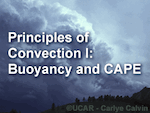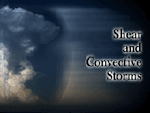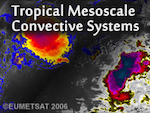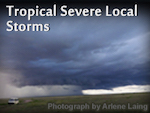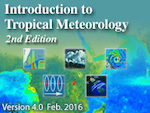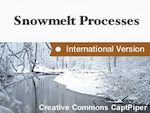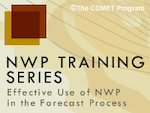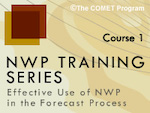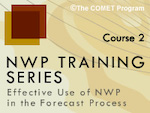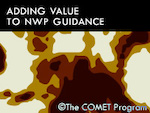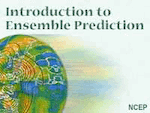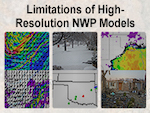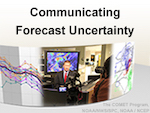Training
Section outline
-
-
Readings
Guidelines for Nowcasting Techniques
Guidelines on Ensemble Prediction Systems and Forecasting
Manual on the Global Data-processing and Forecasting System. Volume I – Global Aspects
-
Videos
Basic Weather Theory
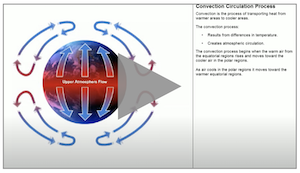
This video presents an introduction to the basic weather theory, with emphasis on the atmosphere, atmospheric circulation, atmospheric pressure, and wind patterns.
By Nicholas WilliamsMonitoring the weather
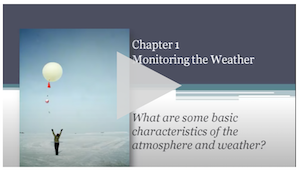
Recorded lecture about monitoring of weather. It provides explanation of some basic characteristics of the atmosphere and weather.
By Michele M., Yavapai CollegeWeather Basics: Clouds and Precipitation
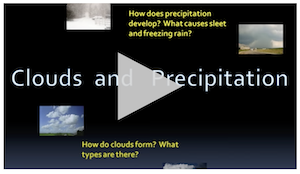
Video about clouds, how they form, and the different types. It also presents the varieties of precipitation that fall from clouds, and what causes them.
By the National Weather Service La Crosse, WIMeteorology II

Recorded presentation about severe weather and how it works: from fog, to thunderstorms, to icing.
By Private Pilot Study, a free online aviation study groupSevere Weather
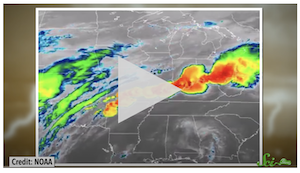
A broadcast on severe weather, including storms and tornados.
By C. JacksonAnatomy of a Super Storm
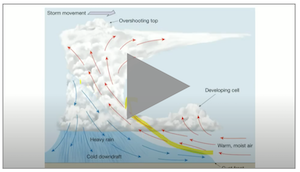
Video about the deadly storms of April 2017 (USA). Data from NOAA's satellite GOES-16 is used to show the storms' formations.
By SciShow NewsForecasting Organized Severe Storms: Basic Ingredients and Pattern Recognition
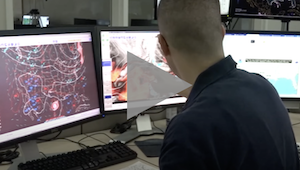
Basic ingredients and pattern recognition that the forecasters can use to assess severe-weather potential.
By Dr. Ariel E. Cohen, National Weather Service Topeka, KS -
Games
Meteorology & Flash Floods Quiz
FFGS & Weather Forecasting Quiz
Make a Thunderstorm

This interactive game provides good illustration of processes that are required for development of a thunderstorm. Prepared by UCAR.
Create a Snowstorm

Interactive game providing opportunity to check understanding of how the position of high and low pressure systems can cause a snowstorm. Prepared by UCAR.
Numerical Weather Prediction Models and Forecasting - Describe Terms

Spin the wheel to be given a NWP term to explain. This resource is directed to forecaster's training. Fun game to play online in group training events. Prepared by WMO-FFGS.
Supercell Storm

Interactive game where players can check their knowledge of elements of a supercell storm. Provided by PurposeGames.
-
Online Courses
Principles of Convection I: Buoyancy and CAPE
Principles of Convection II: Using Hodographs
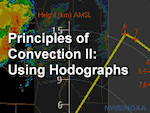
This lesson provides a basic understanding of how to plot and interpret hodographs, with application to convective environments.
By COMET® ProgramPrinciples of Convection III: Shear and Convective Storms
Tropical Mesoscale Convective Systems
Tropical Severe Local Storms
Tropical Mesoscale and Local Circulations
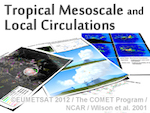
This interactive module is part of an online university-level tropical synoptic meteorology course, which helps international meteorologists meet basic instructional requirements.
By COMET® ProgramLocal Tropical Cyclone Precipitation Forecasting and Communication
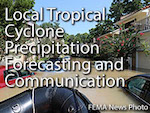
This lesson introduces learners to the challenges in predicting and communicating localized tropical cyclone (TC) rainfall threats.
By COMET® ProgramIntroduction to Tropical Meteorology, 2nd Edition, Chapter 1: Introduction
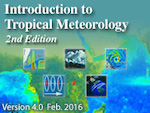
This module introduces learners to tropical meteorology including various methods of defining the tropics. An overview of energy balance and the global climate system is presented.
By COMET® ProgramIntroduction to Tropical Meteorology, 2nd Edition: Chapter 7: Synoptic and Mesoscale Systems
Introduction to Tropical Meteorology, 2nd Edition, Chapter 8: Tropical Cyclones
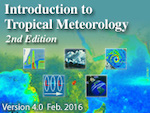
This module describes tropical cyclones' seasonal and geographic variability and controls, decadal cycles, and history of naming conventions.
By COMET® ProgramSevere Convection: Mesoscale Convective Systems
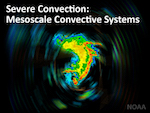
This module describes typical system evolution by examining squall line, bow echo, and MCC characteristics throughout their life cycles.
By COMET® ProgramSnowmelt Processes: International Edition
Effective Use of NWP in the Forecast Process: Introduction
NWP Training Series Course 1 NWP Basis and Background
NWP Training Series Course 2: Using and Adding Value to NWP in the Forecast Process
Adding Value to NWP Guidance
How Mesoscale Models Work
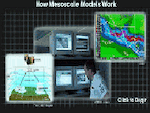
This module is an introduction to mesoscale models. Aimed to improve the understanding of how the models work and how to evaluate model-generated forecast products.
By COMET® ProgramNWP Essentials: NWP and Forecasting
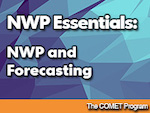
This module introduces forecasters to the complex and multifaceted process for creating a forecast. It also discusses how NWP fits into that process.
By COMET® ProgramOptimizing the Use of Model Data Products
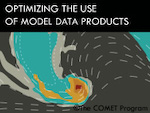
This module guides the learner through the abundance of model data, supporting the understanding and interpretation of the model’s story.
By COMET® ProgramIntroduction to Ensemble Prediction
Limitations of High-Resolution NWP Models
Communicating Forecast Uncertainty
Ten Common NWP Misconceptions
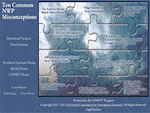
This lesson introduces forecasters to ten of the most commonly encountered or significant misconceptions about NWP models.
By COMET® Program
-


